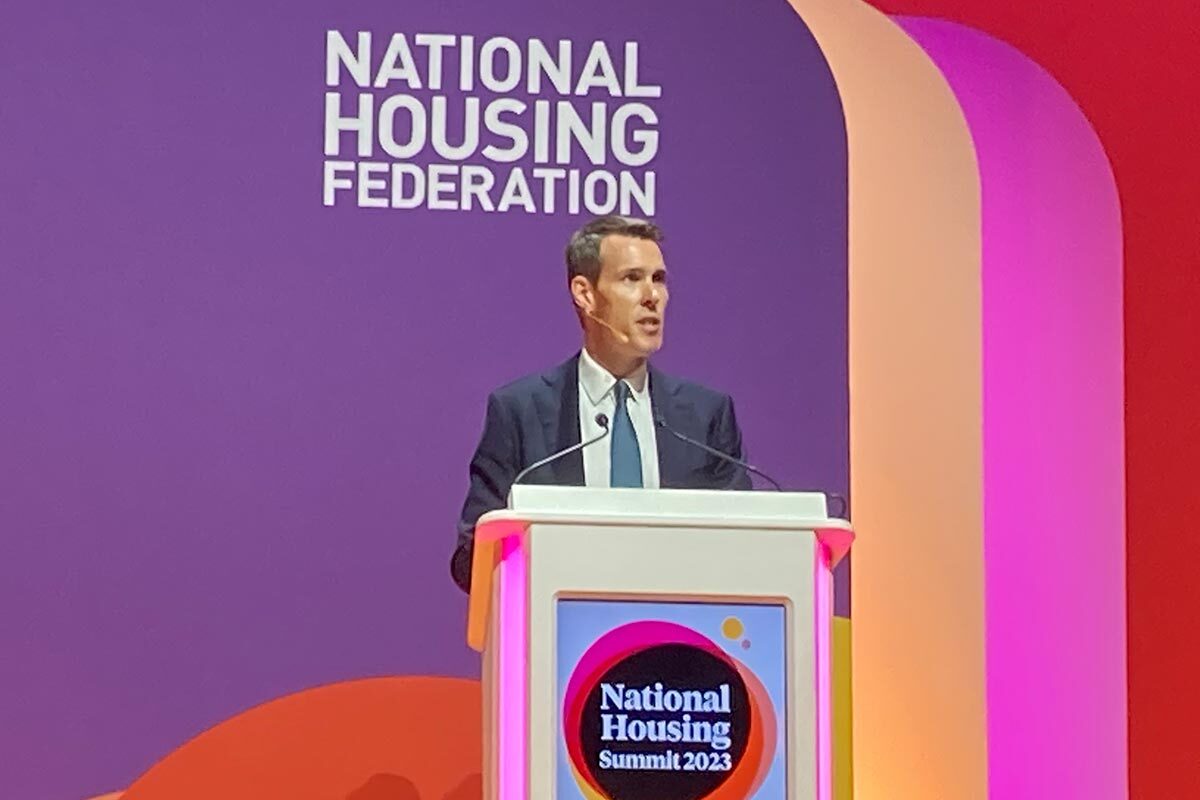You are viewing 1 of your 1 free articles
The Week in Housing: Labour’s housing plans take shape
The Week in Housing is our weekly newsletter, rounding up the most important headlines for housing professionals. Sign up below to get it direct to your inbox every Friday

Good afternoon.
With most pundits predicting a Labour win at the next general election, there is more focus than ever on their housing policies.
This week was instructive in what shape a future Labour government may take. First, thanks to shadow housing minister Matthew Pennycook’s appearance at the National Housing Federation’s Summit, where he set out the party’s plans for social housing supply.
Mr Pennycook promised that Labour would go ‘net positive’ on social rented housing supply early on in its term, using the twin levers of reduced Right to Buy discounts to limit sales and focusing affordable housing grant more keenly on social rented homes.
On the one hand, this is good news as the country currently sells or demolishes 14,000 more social rented homes than it builds or acquires each year, which resembles a ludicrous act of self-harm during a housing crisis.
On the other, it is a pretty limited ambition. “We’ll build at least as many hospitals as we demolish or sell to the private sector” would not rank as a particularly exciting health offer.
Also, Mr Pennycook’s means of getting there do not get the pulses racing. Focusing grant on social rented housing is a welcome move, but unless you also increase the size of the pot, you will actually be building less affordable housing overall. And Labour’s fiscal rules make a bigger pot unlikely.
Cutting Right to Buy discounts may prove a cannier move than scrapping it, but it is possible it may not work to reduce appetite.
Right to Buy discounts were raised in 2012, and sales had flatlined before then to a mere 2,637 a year. But this was about the economy being in recession as much as it was about the lower discounts.
In 2006-07, England saw 17,684 Right to Buy sales – more than any year under the Conservatives – even with the lower discounts that were in place under New Labour, and which Keir Starmer’s party seems keen to reimpose.
Further insight into Labour’s housing policy came later in the week as it opposed an amendment in the House of Lords to remove nutrient neutrality restrictions on housebuilding and was able to leverage a defeat.
What does this tell us? Mostly that housing will remain a political football. Mr Starmer has made a big play of being a “builder not a blocker”, attacking the Conservatives for removing housebuilding targets and promising vague yet sweeping planning reform to get more homes built.
This week was a true test of the political will to stand by that conviction and he went the other way: viewing headlines about being a defender of polluted rivers as a better outcome than being a promoter of housebuilding.
A cynic might say this signals that his big plans on planning reform will go the same way as Boris Johnson’s and Liz Truss’ – dead on first contact with the political reality of the opposition they will face from voters.
Whisper it also, but the arrival of Angela Rayner as shadow housing secretary makes Labour guilty of something else they have regularly chided the Conservatives for: ministerial churn in the housing portfolio.
Since Mr Starmer took over as leader in April 2020, we’ve had Thangam Debbonaire, Lucy Powell, Lisa Nandy and now Ms Rayner in the housing hot seat – precisely matching the Conservatives’ record in the same period.
Elsewhere this week, some positive affordable housebuilding numbers from Scotland buck the gloomy trend of the current economic cycle, but a low number of approvals should temper any optimism.
A busy week from the English regulator saw large London-based A2Dominion land on its gradings under review list (signalling the possibility of a forthcoming major downgrade), while small Nottingham-based Windrush Alliance UK was subject to a severe reprimand.
Have a great weekend.
Peter Apps, deputy editor, Inside Housing
Say hello: peter.apps@insidehousing.co.uk
Quote of the week
“It was remarkable that Michael Gove sent this questionnaire, information seeking, to all councils and housing associations saying, ‘What’s the problem with damp and mould? What are you going to do about it?’
“Well, the answer should have been, ‘What are you going to do about it, secretary of state, because you’re the one with the money to actually help us.’”
Clive Betts, Labour MP and chair of the Levelling Up, Housing and Communities Committee, addressing the National Housing Summit.
Stat of the week
£5.1bn
Private investment in funds targeted at social and affordable housing in 2022, as demand from investors rises.
Editor’s choice: five stories you may have missed
Dispatch from the NHF Summit 2023
What the climate change report means for housing
Housing sector diversity: has the needle moved?
Local authorities and housing associations should buy up private sector homes for the greater good
Sign up for our Week in Housing newsletter
Already have an account? Click here to manage your newsletters



